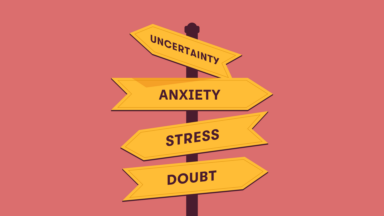
A good night’s sleep should leave you feeling refreshed, but for some people, chronic fatigue syndrome and insomnia turn this simple pleasure into a daily challenge. While these two conditions might appear unrelated, they often go hand in hand. In this blog post, we will delve into the intriguing connection between chronic fatigue syndrome (CFS) and insomnia. If you’re experiencing the frustrating combination of exhaustion and sleepless nights, read on to understand this connection and discover strategies for better sleep and enhanced well-being.
Understanding Chronic Fatigue Syndrome
Chronic Fatigue Syndrome (CFS), also known as Myalgic Encephalomyelitis (ME), is a complex and debilitating condition characterised by persistent, unexplained fatigue that isn’t improved by rest. While fatigue is the hallmark symptom, CFS can also bring about a range of other symptoms, including cognitive difficulties, pain, and sleep disturbances.
The CFS-Insomnia Connection
Sleep Disruption: People with CFS often experience sleep disturbances. These can include difficulty falling asleep, frequent awakenings during the night, and early morning awakenings. This lack of restorative sleep can contribute to increased fatigue. Research shows that it takes longer for people with CFS to get to sleep compared to those without CFS. This study also reported that when they finally do get to sleep, CFS patients may have different nervous system activity than those without, which may contribute to delayed sleep latency (the moment you enter your first sleep cycle).
Pain and Discomfort: Pain is a common symptom of CFS. It can make finding a comfortable sleep position challenging and result in poor sleep quality.
Mental Health Impact: CFS can take a toll on mental health, leading to symptoms like depression and anxiety. These emotional challenges can, in turn, contribute to insomnia.
Daytime Napping: Due to their fatigue, individuals with CFS may take frequent daytime naps, disrupting their ability to sleep at night. This can create a vicious cycle of daytime sleepiness and nighttime wakefulness.
Strategies for Managing CFS-Induced Insomnia
If you are dealing with both CFS and insomnia, there are strategies that can help improve your sleep:
Establish a Sleep Routine: Creating a consistent sleep schedule can help regulate your body’s internal clock, making it easier to fall asleep and wake up at the desired times.
Create a Relaxing Bedtime Ritual: Engage in calming activities before bed, such as reading, deep breathing, or gentle stretches, to signal to your body that it’s time to wind down.
Manage Pain: Speak to your GP about pain management strategies, including medications or physical therapy, to improve your sleep comfort.
Address Mental Health: Seek support for any mental health symptoms you’re experiencing, as treating conditions like depression or anxiety can help with insomnia.
Limit Napping: Try to limit daytime naps to avoid interfering with nighttime sleep. If necessary, keep naps short (around 20-30 minutes).
Cognitive Behavioural Therapy for Insomnia (CBT-I): CBT-I is an evidence-based therapy that helps you identify and change thoughts and behaviours that contribute to sleep problems. It’s highly effective in treating insomnia. It helps change negative thought patterns and behaviours related to sleep. Sleepio is a CBT-I treatment that works with you to develop a personalised insomnia treatment plan, empowering you to challenge negative thought patterns, establish healthy sleep habits, and enjoy restful nights of sleep.
Chronic fatigue syndrome and insomnia often coexist, creating a challenging cycle of exhaustion and sleeplessness. If you are experiencing both conditions, seeking support from your GP and incorporating strategies to improve your sleep hygiene can make a significant difference. While managing CFS and insomnia might require patience and persistence, taking steps to address both can lead to better sleep and an enhanced quality of life.

Here’s our latest

Why Am I Tired All The Time?
Feeling tired is something we all experience from time to time, but what happens when it becomes a constant companion?…

Alzheimer’s and Sleep Changes
Alzheimer’s disease is a challenging journey for both patients and their families. In addition to memory and cognitive changes, Alzheimer’s…

Cancer and Sleep
Hearing the words “you have cancer” affects more than just your physical health. People living with cancer say that poor…


